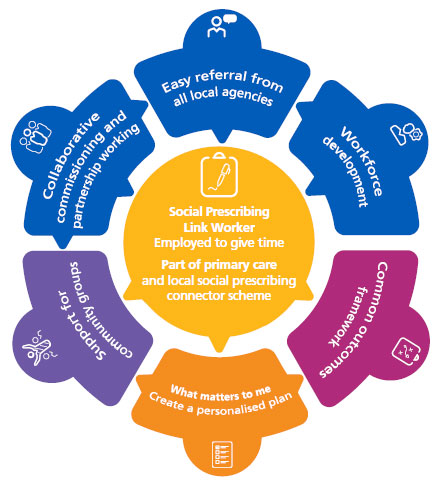
Social prescribing – a new fad or the future of the NHS?
With as many as 1 in 5 GP appointments reported as being for non-medical conditions, social prescribing, sometimes referred to as community referral, has never been more valuable. It has been described by some as a new fad but social prescribing can be traced back as far as the 1920s. (1)
What is social prescribing?
Where traditional medicine is not always appropriate, or unlikely to provide the desired outcome, social prescribing can give the patient access to local, non-clinical support that can help them to either work out a solution to their problem or offer some respite from their symptoms.
This support can be anything from holistic therapies, gym referrals, walking groups, local authority housing teams, financial advisors for debt advice, art groups, legal advice, mental health support groups, gardening and volunteering. The list is pretty extensive and can vary from region to region but essentially it is looking at ways to provide that all important support network.
Who does the referring?
In most cases, referrals will be made via the GP, nurse or another medical practitioner in the primary care centre. Each practice should have a Link worker and that link worker will have some medical training or medical background and will take the time to get to know the patient and work out an appropriate care plan.
 (2)
(2)
Whilst there is little information on how many Link Workers are currently employed in the NHS, it is suggested that by 23/24 over 900,000 people will have been referred to Social Prescribing.
Does it work?
Evidence to prove effectiveness will obviously take time to collate. However, the feedback to date is suggesting that a large proportion of those referred, had improved general health and wellbeing as well as a better quality of life from a more positive mindset so this is really positive. (3)
From the GP’s perspective, NHS England report that 59% of GPs believe that Social Prescribing works and can help significantly reduce their workload.
To conclude, Social Prescribing does appear to have a very important role in the future of the NHS but its success does, in part, rely on the wider community getting involved.
For more information on Social Prescribing and how you can get involved, follow this link: https://socialprescribingacademy.org.uk/about-us/what-is-social-prescribing/
References and links:

